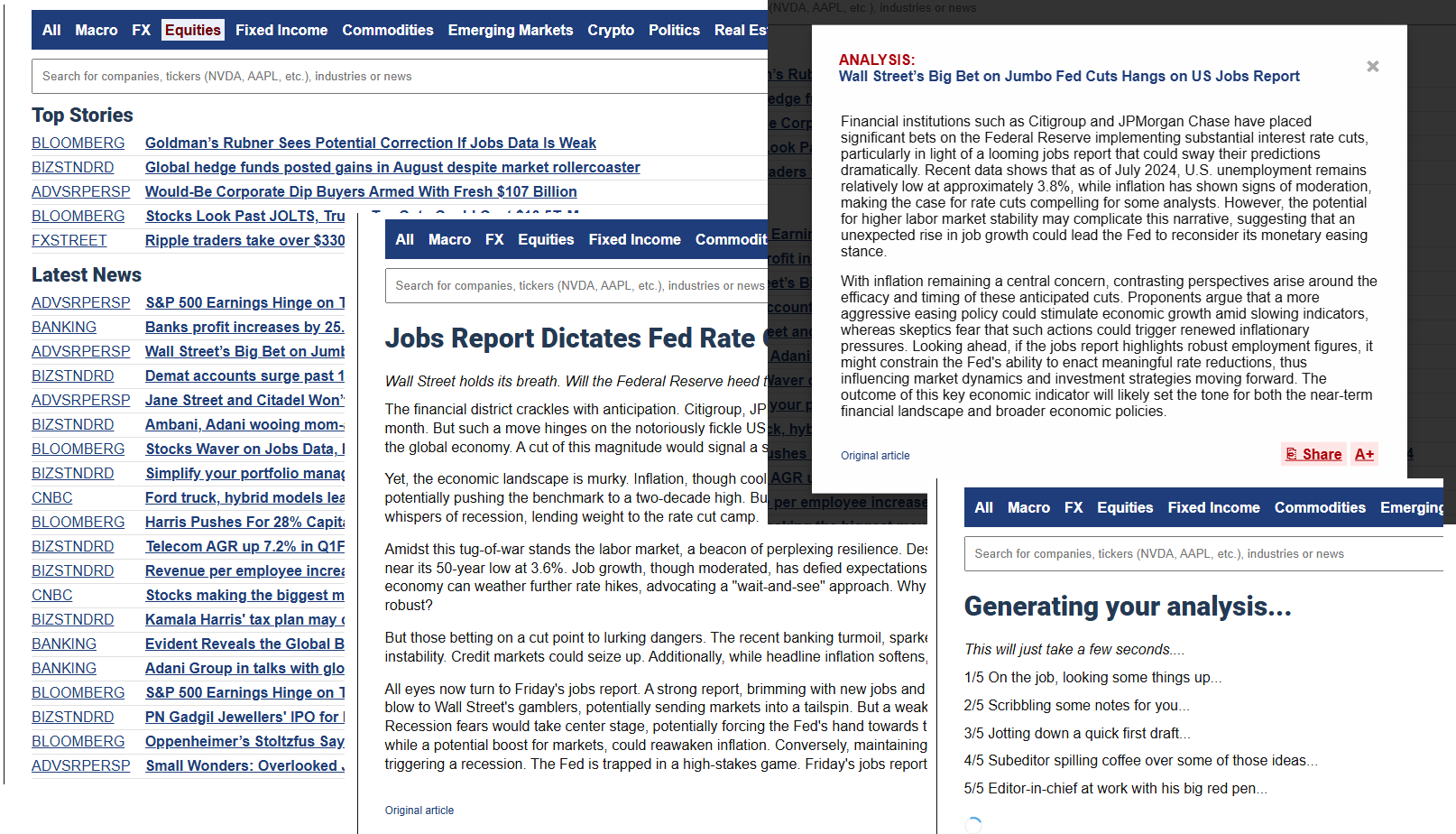AI Revolution Fuels Economic Promise and Ethical Challenges
Artificial Intelligence (AI) stands at the forefront of a technological and economic revolution, poised to inject an estimated $3 trillion into the global economy. This potential drives businesses toward AI innovations, but it also surfaces ethical dilemmas around data privacy, security, and bias. As companies stride into 2024, they confront a complex landscape where risk management becomes crucial to harness these opportunities effectively. AI's dual nature as a catalyst for growth and a source of ethical questions puts enterprises in a delicate balancing act.
The geopolitical stage further complicates the global economic environment. Emerging alliances, notably the BRICS bloc, challenge the hegemony of Western economies, framing an evolving power balance. Russian Foreign Minister Sergey Lavrov's assertion that BRICS is a strategic pivot reflects this shifting dynamic, where AI technologies play pivotal roles. The integration of technological progression into political strategy signals a turning point in international relations, where the convergence of technology and geopolitics reshapes economic strategies.
In the United States, the presidential election heightens the stakes as AI's influence on electoral processes comes under scrutiny. AI’s prowess in data analytics and voter targeting highlights its double-edged nature—offering strategic advantages while posing risks of misuse. This election period underscores the critical necessity of responsible AI implementation in maintaining electoral integrity amidst misinformation and cybersecurity threats.
Financial markets find a semblance of stability through innovation, despite global unpredictability. Instruments like Buffer ETFs, which manage risk while offering growth potential, attract investors seeking balance amidst uncertainty. The trend mirrors corporate America's cautious yet strategic AI adoption, underscoring the imperative of marrying innovation with comprehensive risk assessment. The parallel between financial and corporate strategies highlights the prevalent theme of responsible risk management across sectors.
In legal spheres, the American Bar Association addresses AI's impact on judicial processes, particularly election-related cases. The association's call for responsible AI use mirrors the global corporate challenge of maintaining data integrity in an ever-evolving technological landscape. Upholding judicial integrity against AI's misuse ensures justice remains untarnished by technological advances, further illustrating the critical balance needed across industries.
Business collaborations showcase AI's transformative potential. The partnership between APOLLO Insurance and Townline exemplifies how AI-driven solutions can enhance customer experience while mitigating cybersecurity risks. Such alliances demonstrate the capacity of AI to drive innovation while addressing potential vulnerabilities, advancing both customer satisfaction and business growth in unison.
In the energy realm, AI's role in optimizing consumption becomes crucial as companies brace for shifts prompted by political developments like U.S. elections. Potential policy changes could significantly impact oil and natural gas markets, emphasizing AI's importance in improving efficiency and adapting to fluctuating regulatory landscapes.
The escalating valuation in technology stocks, particularly within AI-intensive sectors, sparks debate over possible market bubbles reminiscent of the dot-com era. Investors scrutinize financial sustainability amidst surging valuations, stressing the fine line between opportunity and risk in investing. This scrutiny advocates cautious optimism, preventing history from repeating itself through informed investment strategies.
Globally, political developments such as Moldova's electoral dynamics introduce new challenges. Countries like Moldova, caught between Western initiatives and pressures from traditional powers like Russia, face crossroads reflecting boardroom deliberations on AI governance. The intersection of national security, global alliances, and technological innovation highlights the nuanced landscape businesses must navigate as they strategize for AI integration.
As organizations approach 2024, they increasingly focus on strategically incorporating AI while embedding rigorous risk assessments into innovation processes. The aim is to maximize AI's benefits, ensuring ethical alignment and societal contributions align with corporate growth. This rapidly evolving scenario requires enterprises to approach AI with foresight and responsibility, balancing innovation with the ethical and social implications of technological advancements.
AI-Powered trading insights: join our email list
Real-Time Market Analysis
Get instant insights on market trends, news impact, and trading opportunities.

